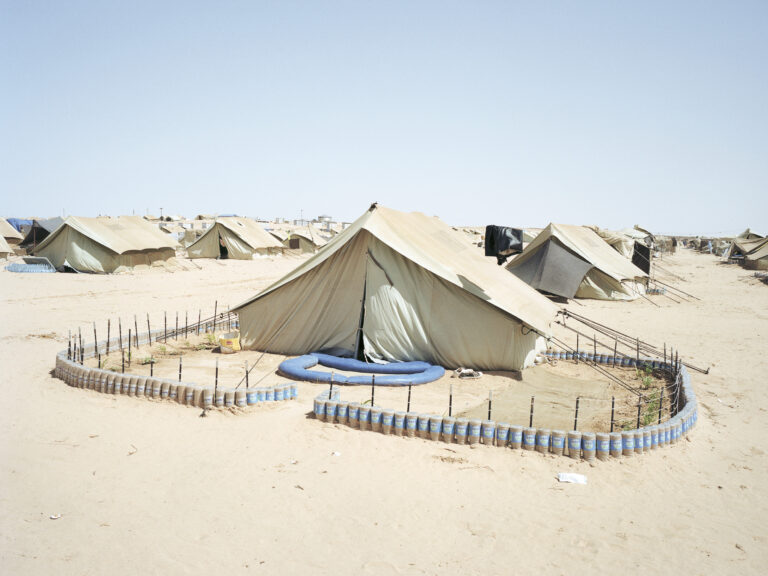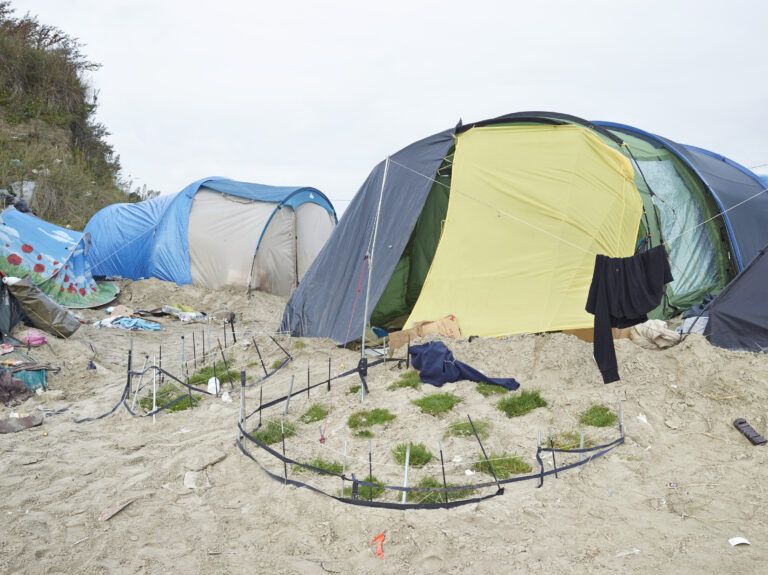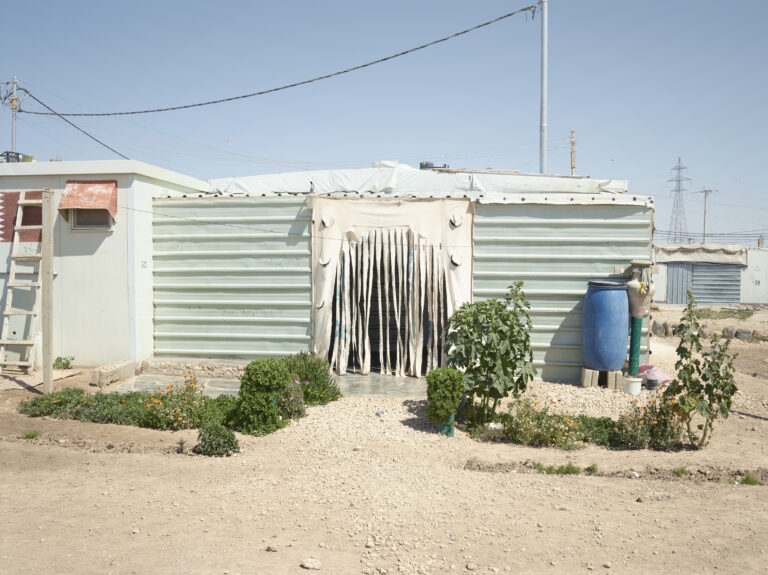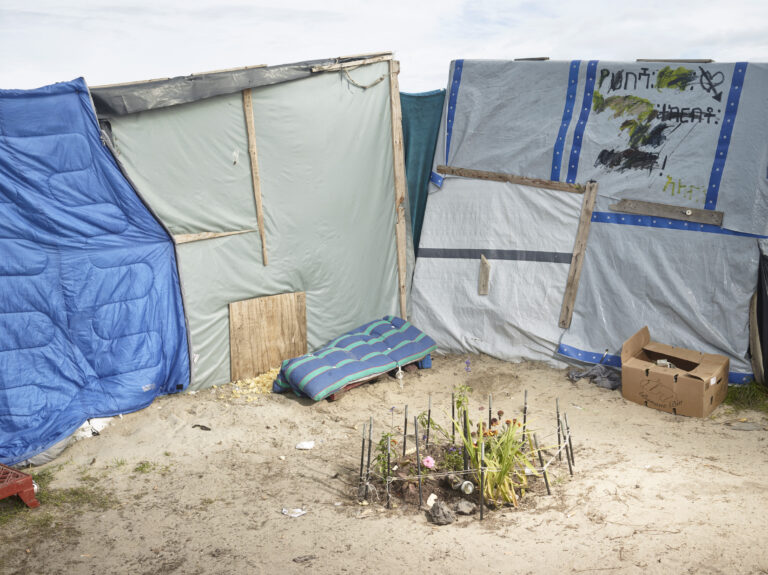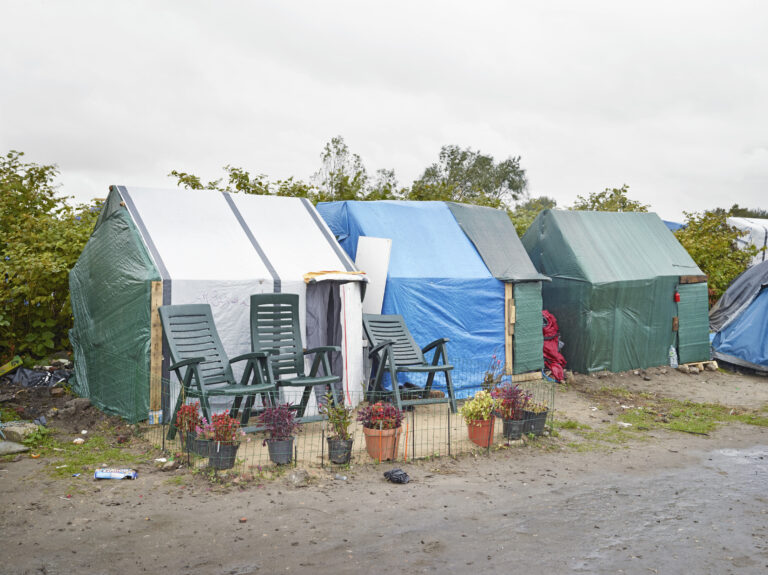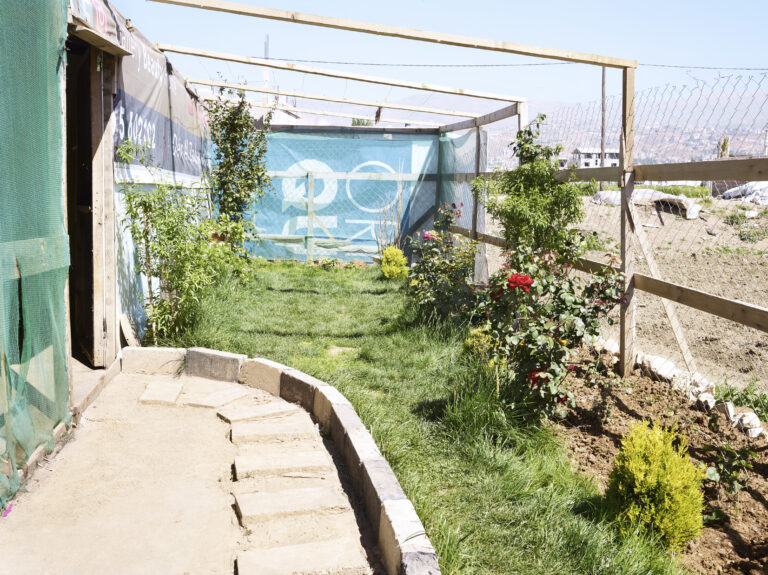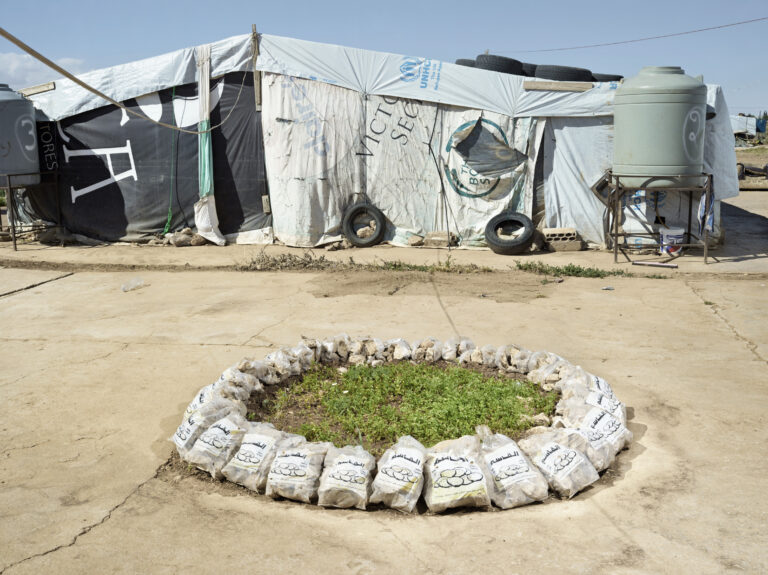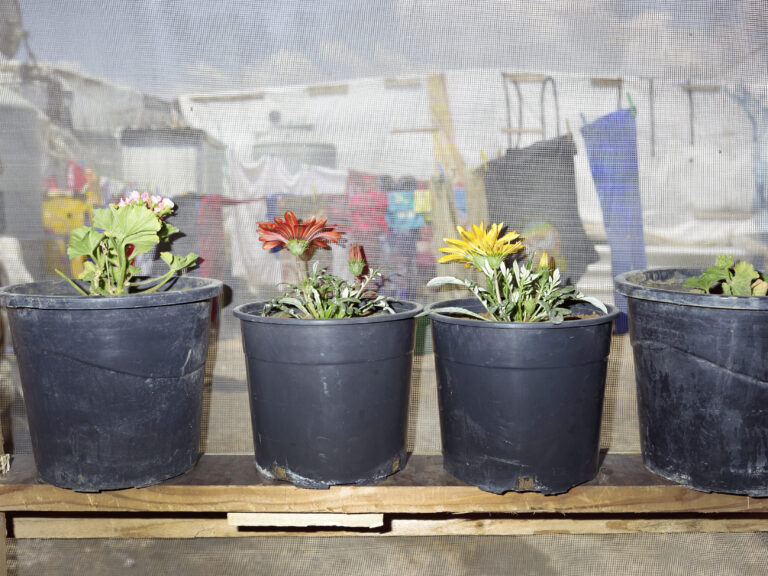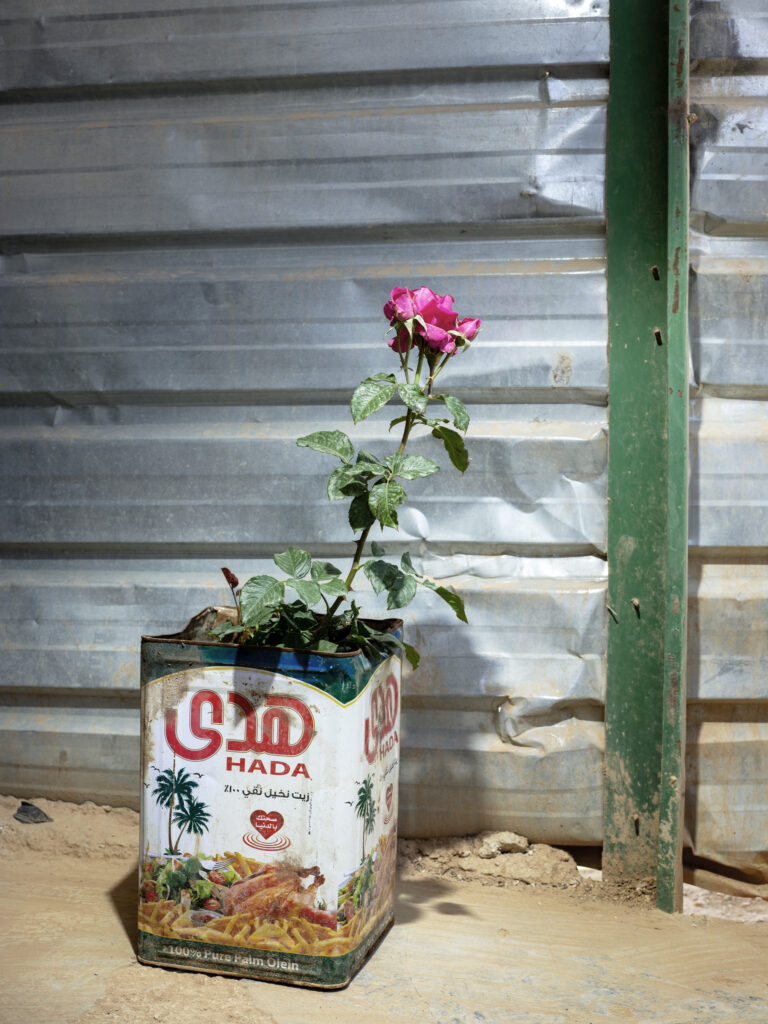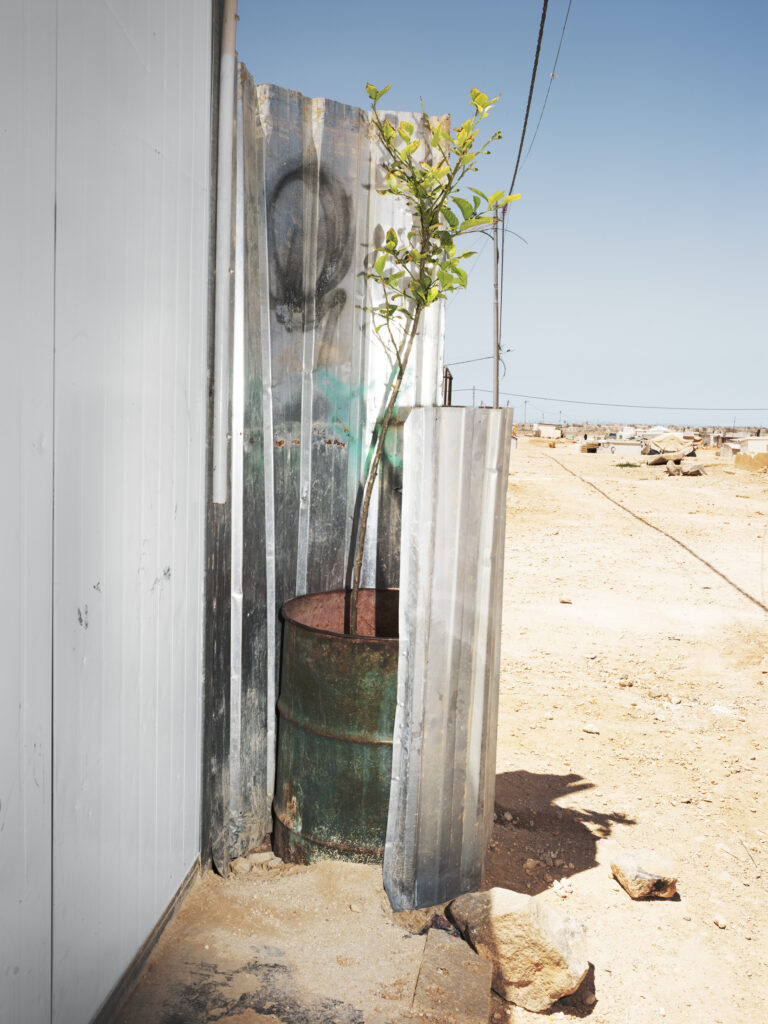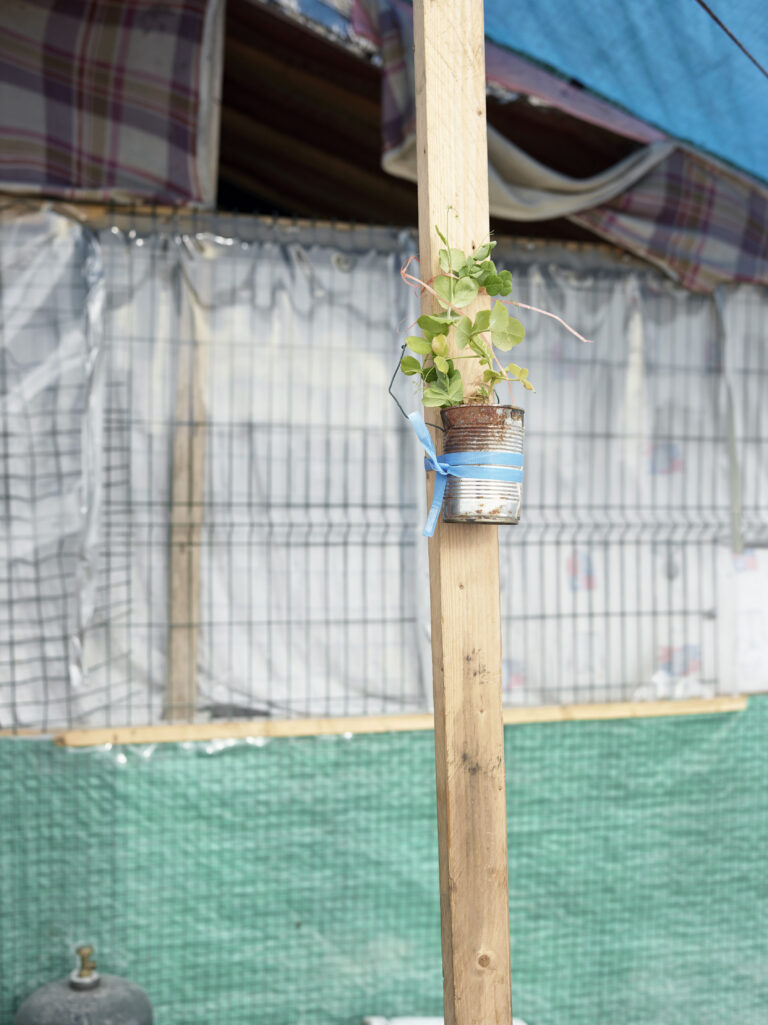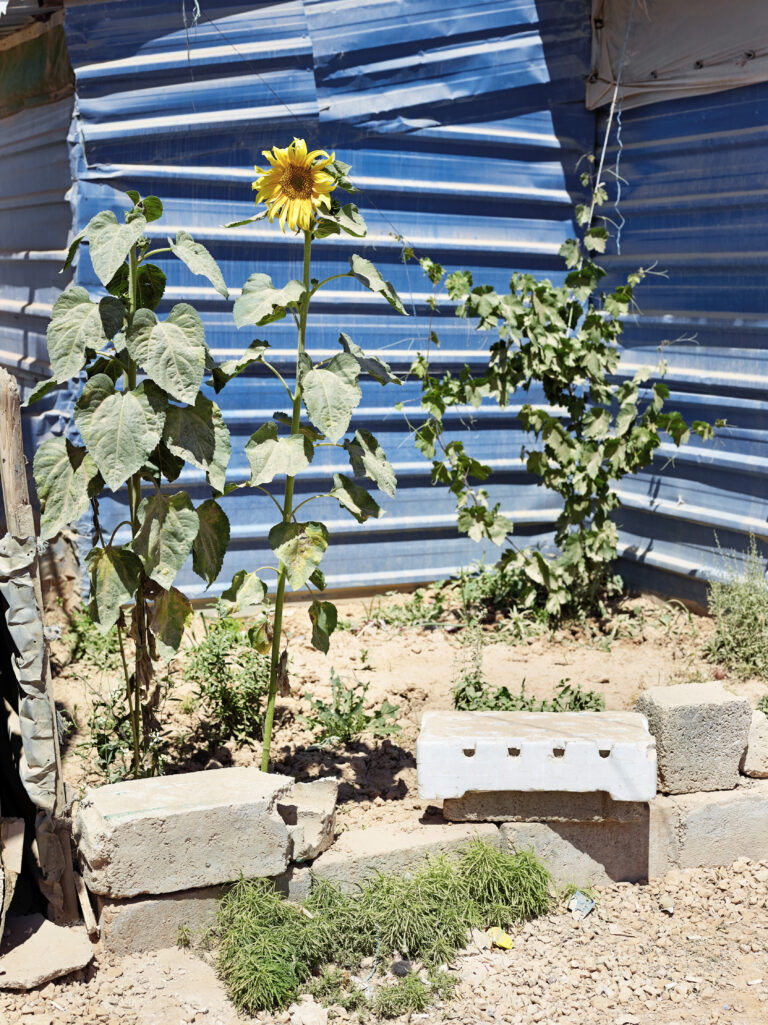Rooted is a work about the world of micro-gardens in refugee camps. These tiny patches of greenery appear wherever camp dwellers seek hope, solace and dignity in caring for plants and flowers. Often after years of living in a camp, these people have come to accept the inevitability of putting down roots in foreign soil.
Lebanon, Beqaa Valley, May 2018
After years of photographing poorly organized, makeshift refugee encampments, I felt it was time to take a look at an official camp organized by UNHCR. I travelled to Tunisia for this purpose in 2011. The Choucha refugee camp was located in desert land bordering Libya, and its main inhabitants were emigrants from Sudan, Somalia and Chad. An estimated 2.5 million people, roughly one-third the population of the Darfur area, have been forced to flee their homes after attacks by Janjaweed militia backed by Sudanese troops during the ongoing war in Darfur in western Sudan since 2003.
Despite the scorching desert heat in at Choucha, I was amazed to find little garden plots complete with garden ornaments all over the camp. I also witnessed how inhabitants personalized the standard tents provided by UNHCR. They would cut into the tent fabric in order to increase the height or to add on an entrance awning. Strangely, the public relations officer who guided me around the camp had never noticed these expressions of individuality. He seemed fixated on the victimhood of the camp inhabitants and was completely oblivious to the signs of their resistance to that stigma. The awareness of probably being fated to a long stay in the camp prompted a need among the inhabitants to distinguish themselves from the monotonous official surroundings. These little gardens were expressions of resistance to bureaucratically imposed victimhood.
From that moment on i started noticing this little gardens of hope in many other places where Refugees build a temporary shelter.
This work was on display in the following exhibitions:
- Galerie Bart: Transit
- The Great Photography Special 2020
- Unseen 2019
- Foam, Amsterdam 2016
Number three in a series
Following Shelter and Ville de Calais, Rooted is the third and last part of an unintended trilogy on the lives of refugees and migrants. The three books were not conceived as a series sharing a preconceived structure or format, but are at most loosely related in content, photography and book design. The books Shelter and Ville de Calais arose independently, each telling a distinct story in its own narrative style and logic. And Rooted will be no exception.
Rooted returns to a phenomenon that was already noted in Ville de Calais: the many refugee camp residents who find hope, consolation and dignity in nurturing a few plants. These miniature gardens are often little more than a few tin cans planted with flowers, or of a handful of seeds or bulbs struggling to sprout in a patch of meagre soil. Some residents will go so far as to hammer in a few stakes or construct a makeshift fence to mark off a temporary claim to a bit of territory. The phenomenon is not of course limited to Calais, for almost anyone who has been expelled from their homeland will eventually reconcile themselves to the unfamiliar ground where they have ended up. To me, the herbs, flowers and miniature gardens that they plant symbolize a longing for something resembling a normal existence.
Besides in Calais, I have in recent years photographed micro-gardens in refugee camps in Tunisia, Jordan and Lebanon. I also noted the stories of the gardeners. What emerged was not only the importance of a bit of greenery but also the way the temporariness of the camp dragged out into a seemingly permanent state, with little prospect of moving on or returning home. The reality of their permanent displacement gradually dawned on them. They were now stranded, with little choice but to put down roots in a foreign soil. Here they were tolerated although it was not where they wanted to be.
It was no solace to the camp dwellers that they were sometimes a mere 20 kilometres from their original home. The future they once saw as full of possibilities was now barred to them. Caring for herbs and flowers was often all they had to hold onto, to remind them of home, a comforting microcosm in an uprooted life.
As with Shelter and Ville de Calais, I am collaborating with graphic designer Robin Uleman on Rooted.
